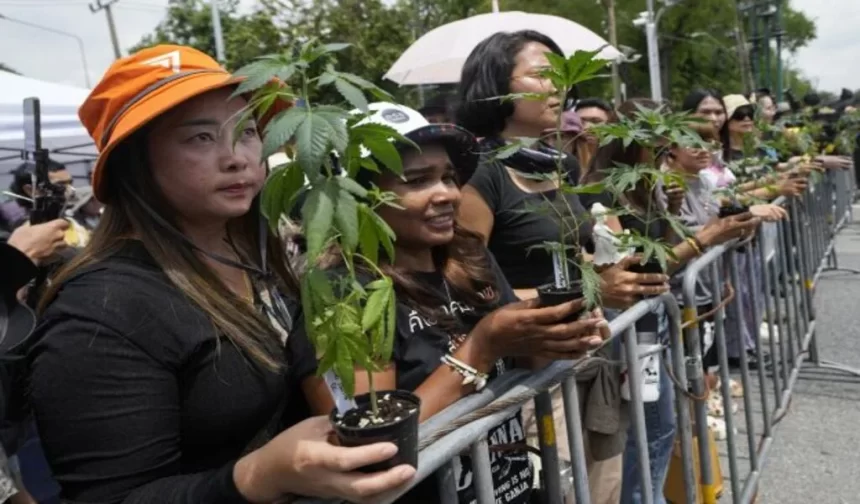(CTN News) – Critics have lambasted the government’s decision to categorize cannabis as a narcotic, claiming it will hurt cannabis-related firms and undermine investor trust in the country.
On July 5, a health committee in charge of policing illegal substances approved by a majority to categorize cannabis and hemp as narcotics, beginning January 1, 2025, according to Surachoke Tangwiwat, deputy permanent secretary for public health.
The committee will submit its report to the Narcotics Control Board (NCB) for review this month.
According to the panel’s resolution, Marijuana and hemp are narcotic plants except for their branches, roots, and seeds.
Cannabis buds and any products having more than 0.2% tetrahydrocannabinol (THC) will also be considered drugs.
If the NCB approves the decision, the Food and Drug Administration will change any cannabis-related regulations and develop guidelines for the plant’s use, according to Dr. Surachoke. Several laws will need to be modified before January 1.
Prime Minister Srettha Thavisin has directed the Public Health Ministry to rewrite a ministerial order reclassifying Marijuana under the Category 5 Narcotics list and create a regulation limiting the plant’s usage to medical purposes by the end of the year.
Investors are losing confidence.
According to Hirunrat Mahaditthadakul, secretary of the Hemp and Marijuana Industries Association, the government’s decision to reverse the previous administration’s cannabis decriminalization strategy will negatively impact investor confidence.

“Investors will lose confidence in doing business as a result of the policy flip-flop,” she informed the audience.
“Several entrepreneurs have invested in Marijuana firms worth tens of billions of baht. She stated that production plants for cannabis oil extracts have been established, and licenses have been obtained.
If cannabis is reclassified as a narcotic, they can only adjust by producing oil extracts from other plants and herbs instead, she said, adding that the reclassification will also harm cannabis producers who have made significant investments.
When cannabis was originally decriminalized, many new investors, especially those from outside, regarded it as a new cash crop with potential for commercial growth, she added.
She claimed that in the two years since the facility was removed from the narcotics list, each entrepreneur had invested at least 10 million baht on average.
“If the plant is reinstated on the narcotics list, no one will want to cultivate it. Some may choose to smuggle the plant from neighboring nations because it is cheaper,” Ms Hirunrat stated.

The relisting will also have an impact on shops that sell Marijuana-based items, especially in tourist-friendly provinces, she said.
Suppose these shops want to stay in business. In that case, they may need to seek permission to operate as traditional Thai medicine clinics, selling cannabis products solely for medicinal purposes, which will necessitate new investments, she said, adding that obtaining a license to open a traditional Thai medicine clinic is difficult.
“Once Marijuana is reclassified as a narcotic, many of these establishments are expected to close. “Only large investors will survive, and small entrepreneurs will fail,” she stated.
“Relisting Marijuana as a narcotic is not the appropriate option. Instead, the government should work to implement a cannabis control statute that establishes suitable cannabis use guidelines.
“Right now, it is about politicians playing their game,” Ms. Hirunrat said, alluding to the apparent conflict between the coalition partner Bhumjaithai Party, which advocates for the plant’s decriminalization, and the ruling Pheu Thai Party, which attempts to reverse it.
Source: Bangkok Post

Anna Wong serves as the editor of the Chiang Rai Times, bringing precision and clarity to the publication. Her leadership ensures that the news reaches readers with accuracy and insight. With a keen eye for detail,














